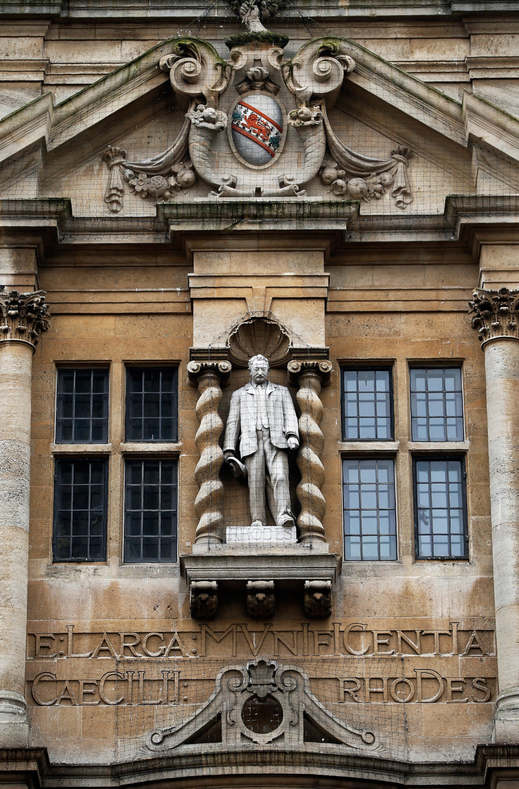By Zoltán Wittich
Oxford University students recently removed a portrait of Queen Elizabeth II from the walls of the university while 150 faculty said they would refuse to teach until the university removes a statue of Cecil Rhodes from a building off campus.
The removal of the portrait of Queen Elizabeth II of England was decided on Tuesday by the student council at Magdalen College, part of Oxford University. According to the motion, the removal of the painting was necessary to make the space more “inclusive”, particularly to cater to the sensitivities of foreign students who are reminded of the colonial era through works of art relating to the British monarchy.
At the committee meeting ten of the participants voted in favor of removing the portrait, two voted against and five abstained. The minutes contain statements such as: “The removal of the queen (in connection with the so-called cancel culture) sends a terrible message that will upset many.” However, another spokesman said, “We have no authority to remove the queen, but it does is only about our common room, which should be inclusive ”.
The fact that the proposal was introduced by an American guest student, a certain Matthew Katzman, caused further outrage among the British, who hold the monarchy in high esteem. Katzman is president of the Magdalen Middle Common Room student organization, which voted to remove the portrait. According to Katzman, the painting will be kept between other works of art in the future. He added, “Representations of the royal family can be found in many locations on campus, so it was agreed that the painting in question was an unnecessary addition to the common room.”
Since its inception in 1458, Magdalen College has produced a number of famous alumni, including King Edward VIII, former British Chancellor of the Exchequer George Osborne, former Canadian Prime Minister John Turner and Austrian Nobel Prize in Physics, Erwin Schrödinger, who has received a total of ten Nobel Prizes . Magdalen College President Dinah Rose, who was appointed last year, said that “the university supports free speech and political debate even though students have not spoken on behalf of the institution.” Rose further: “Being a student is more than just learning, it’s about discovery and discussion. And it is sometimes provocative towards older generations. “
Education Secretary Gavin Williamson responded to the matter on Twitter by saying:
For Oxford University students to remove a portrait of the Queen is simply absurd. She is the head of state and a symbol of the best that Britain has to offer. During her long reign, she has worked tirelessly to promote British values of tolerance, inclusiveness and respect around the world
– Gavin Williamson (@GavinWilliamson) June 8, 2021
Prime Minister Boris Johnson confirmed through his spokesman that he agrees with Williamson’s position.
At another Oxford University institution, Oriel College, 150 faculty members have said they will not teach students or engage in other activities, including interviews, conferences and seminars, until the university “removes the statue of the imperialist Cecil Rhodes”.
The institution was charged with racism last month for refusing to remove the statue from one of its buildings. Racism and the lasting effects of colonialism “, so the scientists,” can only be effectively combated with the participation of all university institutions. Oriel’s decision undermines those efforts. ”After an independent commission of inquiry called for the removal of the Cecil Rhodes statue last June, Oriel College agreed but decided to postpone the removal, citing the cost.

Cecil Rhodes was an English-born economist, businessman, politician and mining tycoon who mainly worked in South Africa during the second half of the 19th century. As a staunch supporter of the British Empire, Rhodes supported the colonial expansion of the island nation in southern Africa and became head of government of the British colony of Cape Town in 1890. The colony of Rhodesia (now Zimbabwe and Zambia) was named after him. Although he bequeathed millions of pounds to Oriel College, its values are inconsistent with the worldview of a modern university. Rhodes is seen as imperialist and racist. That is why, for example, the Cecil Rhodes House in London was renamed Park View House in March at the request of its residents.
Protests by Black Lives Matter, a movement that defines itself as anti-racist, have resulted in the renaming of 39 streets, houses and schools and the demolition of 30 statues and monuments of British historical figures across the UK since last summer.
Source: Magyar Nemzet